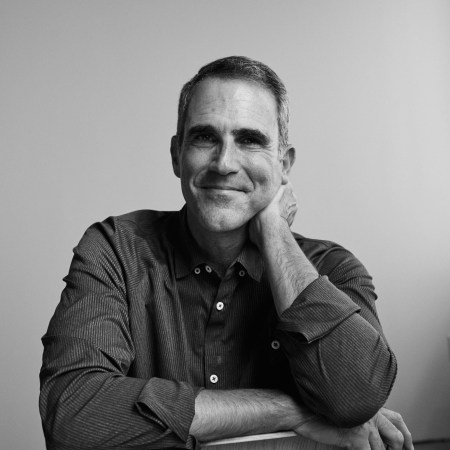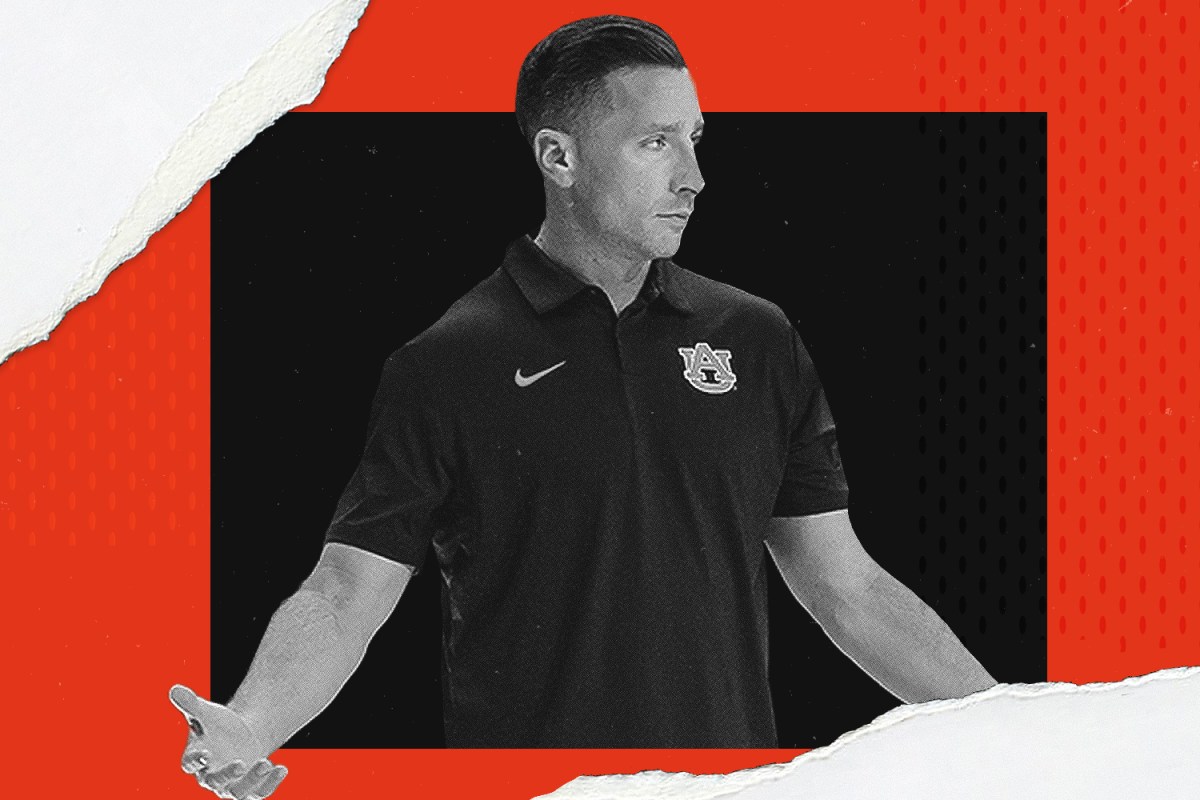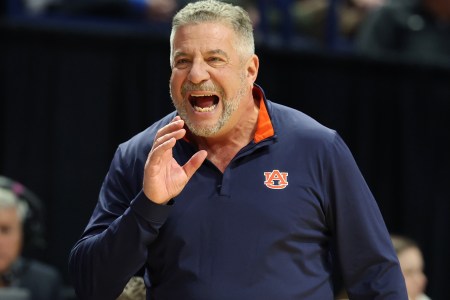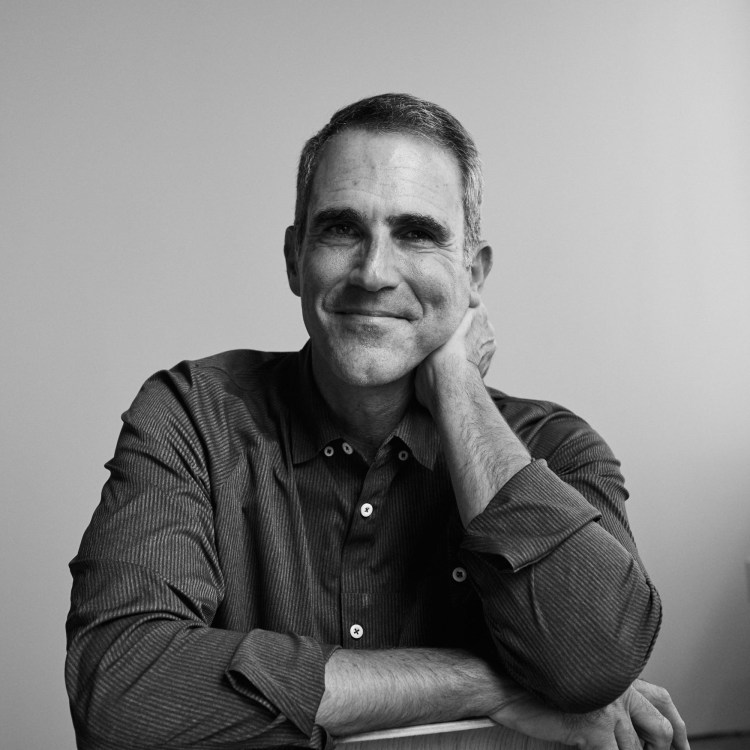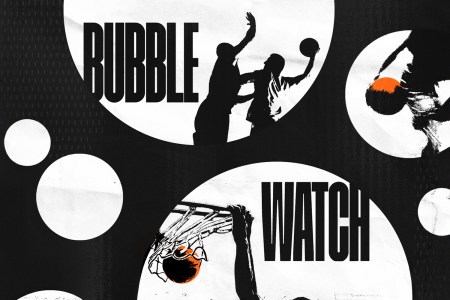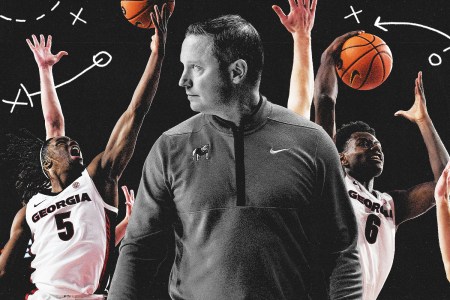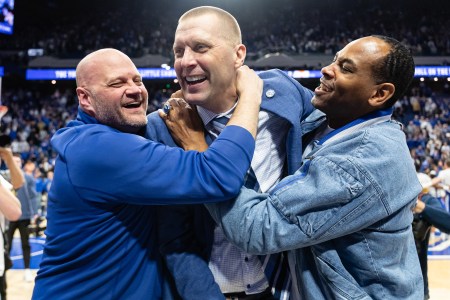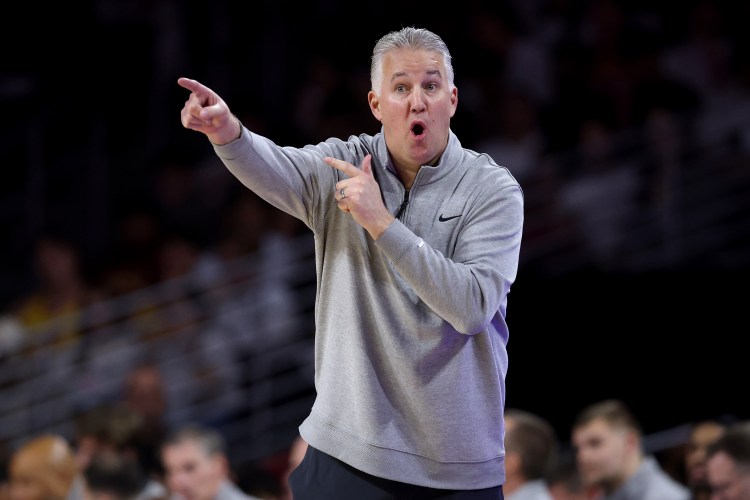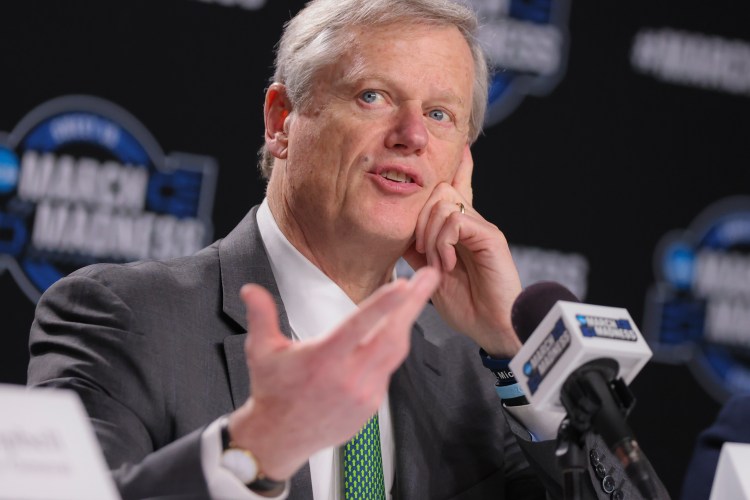From 2007 to 2011, Steven Pearl was a little-used reserve at Tennessee, averaging 1.2 points in 8.4 minutes over the course of his career. His father, Bruce, was the head coach, and if Steven wanted to follow his dad into the profession, he would have had plenty of options. Instead, he opted for a crossover move and took a job selling medical supplies for Stryker Corporation.
Part of the reason for that was the bitter way Bruce’s tenure ended in Knoxville. The school fired him in March 2011 amidst a grueling NCAA investigation that would eventually result in a three-year show-cause penalty. But even if that hadn’t happened, Steven would probably have made the same choice. “I was kind of burned out because I’d been playing basketball my whole life,” he told Hoops HQ. “I had made the decision on my own that I wanted to start my own path and do something a little different.”
The irony of those words is not lost on Steven, given that not only did he eventually follow the path into his father’s profession, but also his job. The final step was taken on Sept. 22 when Bruce — or “BP,” as Steven calls him — made the surprising announcement that he was retiring as the head coach at Auburn. Later that day, the school announced that Steven, 38, who has been on Bruce’s staff since 2014, would be his permanent replacement.
The transition made for a joyful and wistful moment for the Pearl and Auburn basketball families, but Steven is clear-eyed about how difficult the next step will be. It’s hard enough to succeed someone who did a historic job resurrecting a moribund program. Steven must also do so after all but one scholarship player departed from last season’s Final Four squad. The staff did the best they could to replenish the roster with freshmen and transfers, but that’s a tough formula to take into the SEC, which once again will be the toughest conference in the country. “He’s got a new team and a young team,” Bruce Pearl told Hoops HQ. “Those two things don’t usually equate to a lot of winning.”
No doubt Auburn fans will give Steven the benefit of the doubt as he muddies his way through his inaugural season at the helm. But fans are not known for their long-term patience. As the son of a coach who saw his father go through incredible highs and deep lows over the course of his 34-year career, Steven knows all too well that this opportunity is fraught with peril.
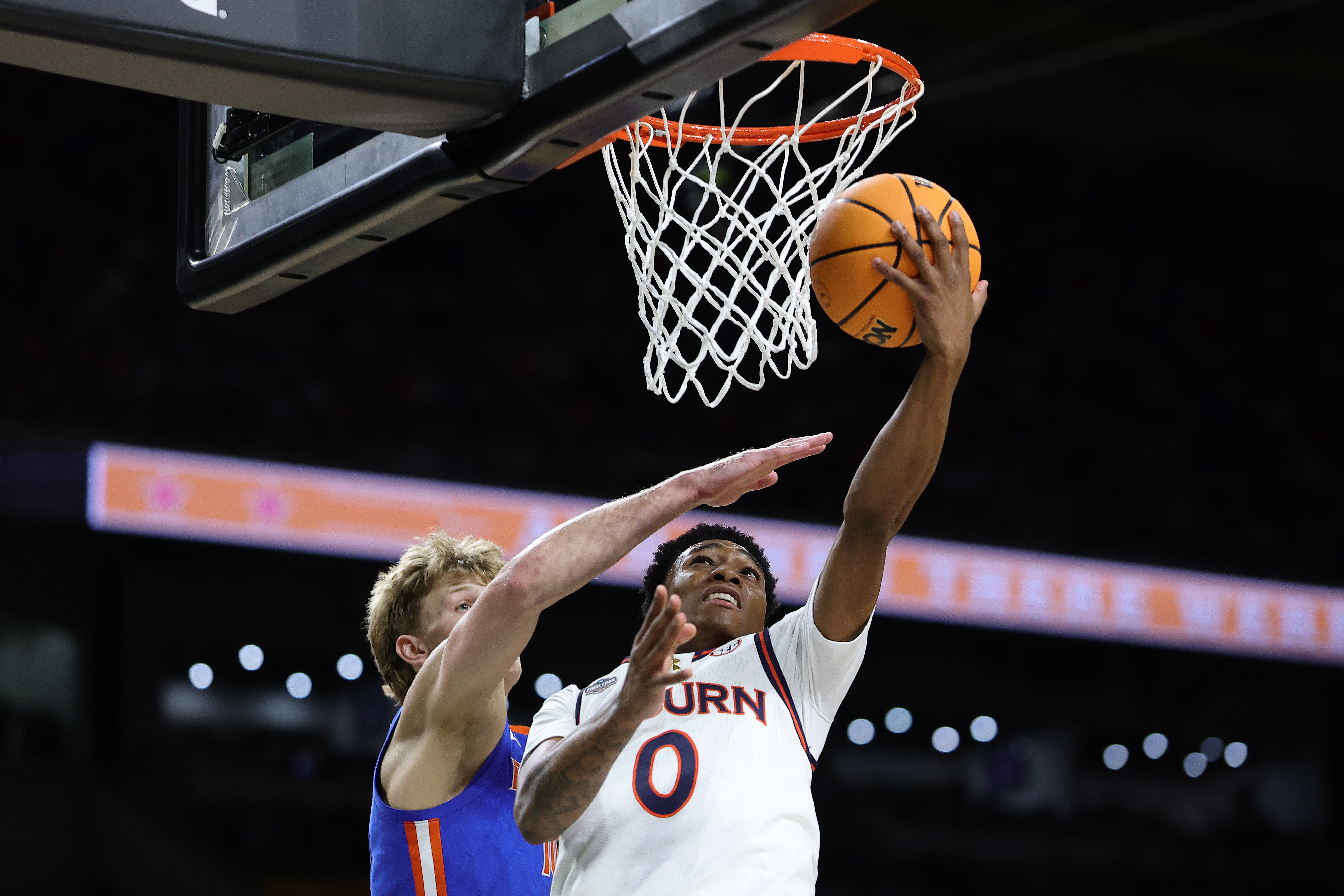
“I understand that there’s expectations, but I truly believe we have in place a staff that can not just sustain the success, but also build on the success,” Pearl said. “I’m just diving in head first into those expectations and into the success that BP brought to this university and just using it as motivation to continue to grow and get better.”
Indeed, Steven can take comfort knowing he will be supported by a group of assistants who also have extensive experience in the program. Assistant coaches Mike Burgomaster, Ira Bowman and Ian Borders have a combined 26 years between them on the Auburn staff. Director of Basketball Operations Maddux Jeffreys has been there 10 years. That’s on top of Steven’s 11-year tenure, which he began as an assistant strength coach and eventually working his way up to Associate Head Coach in 2023. The change at the top is seismic, but from a strategic standpoint very little will change inside the program.
“A lot of the things that we’ve done that have shown success, we has a staff have all built together,” Steven said. “It would be stupid for me to change just for the sake of change, to show that I’m not BP. I’m not going to do that.”
That line of thinking speaks to the main reason why Steven abandoned his medical sales job 11 years ago. He enjoyed the way the job at Stryker appealed to his competitive instincts, but he realized there was something important missing: teammates. “I’d get a big sale and then I’d have to get in a car and drive three-and-a-half hours back to Knoxville, and I’d have no one to celebrate with,” he said. “Or you might lose an account, but you’ve got no one to be miserable with. I missed the team aspect, the camaraderie that’s part of winning and losing. So I was itching to get back into the sports world.”
Steven scratched that itch by hosting a radio show at the Tennessee Sports Network for two hours each Sunday. When Bruce got hired in 2014, he asked Steven if he wanted to come along. This time, Steven jumped at the chance. “I hadn’t coached in three years, so I didn’t have a staff to bring with me,” Bruce said. “If I didn’t get back into coaching, I don’t know whether he would have changed careers. It was all about father-son.”
At the time, Auburn was arguably the worst power conference job in the country. The Tigers hadn’t been to the NCAA Tournament in 12 years, and they had made it to the second weekend of the tournament just three times. All Bruce did was engineer one of the best rebuilding jobs in the history of the sport, leading the Tigers to three SEC regular season titles and two Final Fours, including last season as a No. 1 seed.
What’s Next for Bruce Pearl?
The 65-year-old Auburn coach made a surprise announcement on Monday that he was retiring. Could a run for the U.S. Senate be next?
As he approached his mid-sixties, Bruce would often ruminate about when he might want to step away. The possibility loomed especially large over the last several months as he openly contemplated a potential campaign for the U.S. Senate. He eventually decided not to run for office, but as the 2025-26 season approached, Bruce was arrving at the conclusion that he might not prepared to devote his usual manic energy to the job.
The back-and-forth was nothing new, but Steven could tell his father was more serious this time. Even so, it wasn’t until Sunday Sept. 21 that he learned for sure that Bruce was retiring. “It really tugged at him because it’s all he’s known his entire life,” Steven said. “It wouldn’t have surprised me if on Sunday he had called me and said, ‘Hey, I’m gonna do this for another year or two.’ But he’s always given 120 percent to everything that he has done, and he just didn’t feel like he could give that to this group.”
Steven and other members of the family met Bruce at the basketball facility later that day so he could record his tearful 14-minute farewell video. Steven figured he would have a chance at the head job, at least on an interim basis, but after the video was over Auburn athletic director John Cohen pulled him aside and offered it to him on a permanent basis. “That’s when it hit me that this is reality,” Steven said.
From the moment the change was announced the next day, Steven’s life has been a constant whirlwind. His first order of business was to keep his current roster intact. NCAA rules allow players a 30-day window to transfer following a coaching change, regardless of when it happens. Within the first day or two, all but a couple of players reaffirmed their commitment, but eventually all 12 confirmed they were staying. The most significant returnee, and the one who wavered the most, was 6-foot-1 sophomore point guard Tahaad Pettiford, who tested the NBA Draft waters last spring and would have been highly coveted by other schools. Pettiford quickly confirmed that he too was staying. Last week he was voted preseason first team All-SEC.
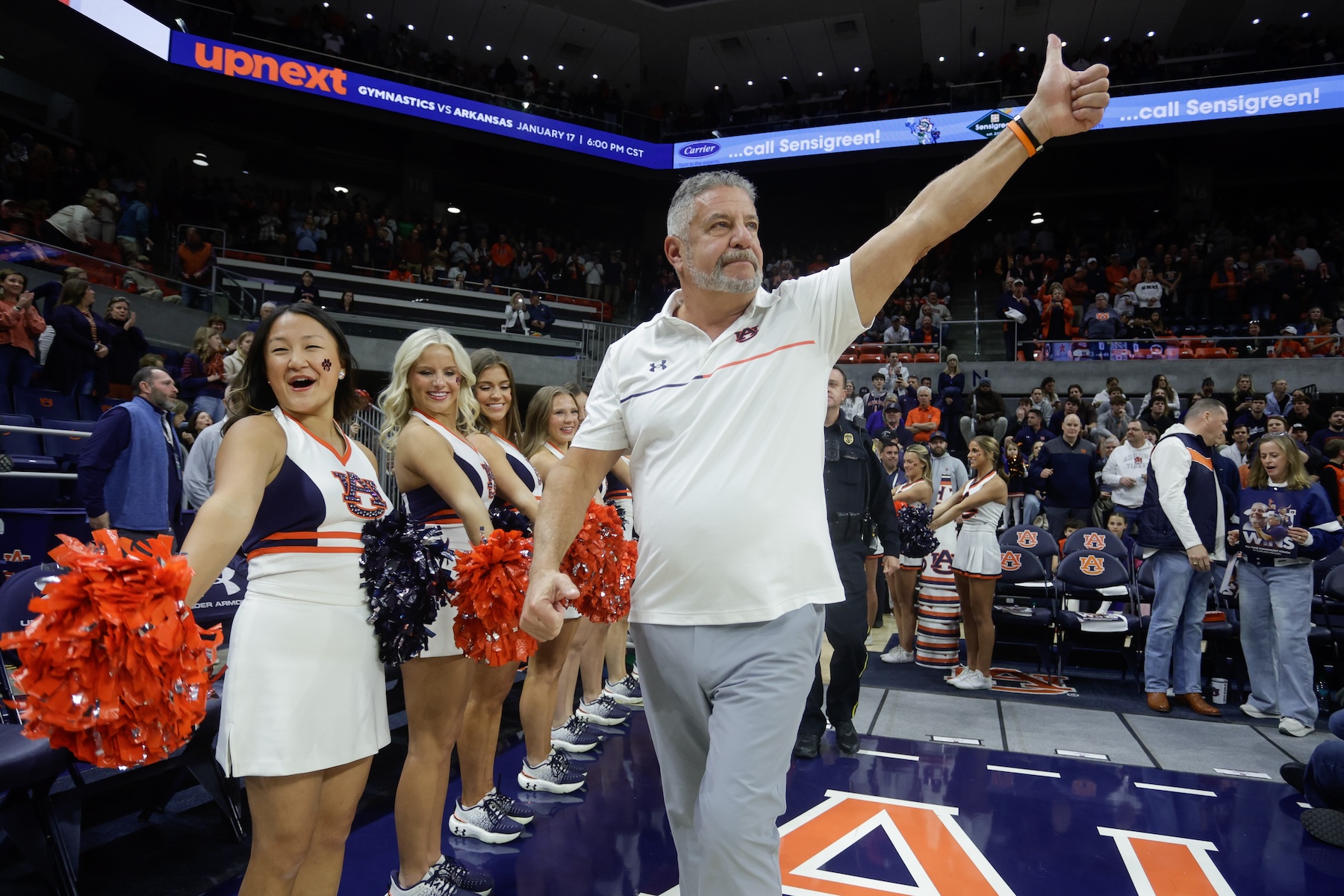
Steven has also made sure to spend time with the high school players whom the staff had been recruiting. Beyond that, his schedule has been jam packed with long drives, phone calls, meetings and meals, with all the attendant flesh pressing and back slapping that comes with dropping the word “assistant” from his title. “Every single day you’re having breakfast with someone new or you’re driving to a different part of Alabama to go speak to a group,” he said. “From 7 a.m. to 7 p.m. you’re constantly doing stuff. The good thing for me is I watched BP do it for 30 years, so none of it has been a surprise.”
The most natural part of the transition has come on the practice court. Over the last few years, Bruce delegated most of the summer workout responsibilities to his assistants, so there wasn’t much adjusting to do at first. Steven took his first turn as head coach on Oct. 15 during an exhibition game against Oklahoma State in Birmingham. The Tigers lost 97-95 in overtime, which could be a harbinger of the difficulties that await this winter.
The biggest difference between father and son will be in the area of sideline comportment. Whereas Bruce was well-known for vociferous volatility and prolific perspiration, Steve intends to keep things on a more even keel. “BP was animated on the sidelines. He was able to do that because he’s one of the best coaches in college basketball,” he said. “I’m 38, they’re in their early twenties, so (the players) are going to react more to how I react. Being a first-time head coach, being a younger coach, I’m going to be way more even keeled.”
That equanimity will be tested in the months ahead. Much has changed at Auburn, but the essence of the job remains the same. The son has risen, but the father’s cloud remains, and nothing clears the skies like winning. “This is an opportunity that 99 percent of assistants in my profession will never get,” he said. “I understand that I’m getting it partly because of my last name. I’m a realist when it comes to that. I also know that what we did doesn’t happen without hard work and an ability to get things done. It’s up to me to try to keep that going.”
